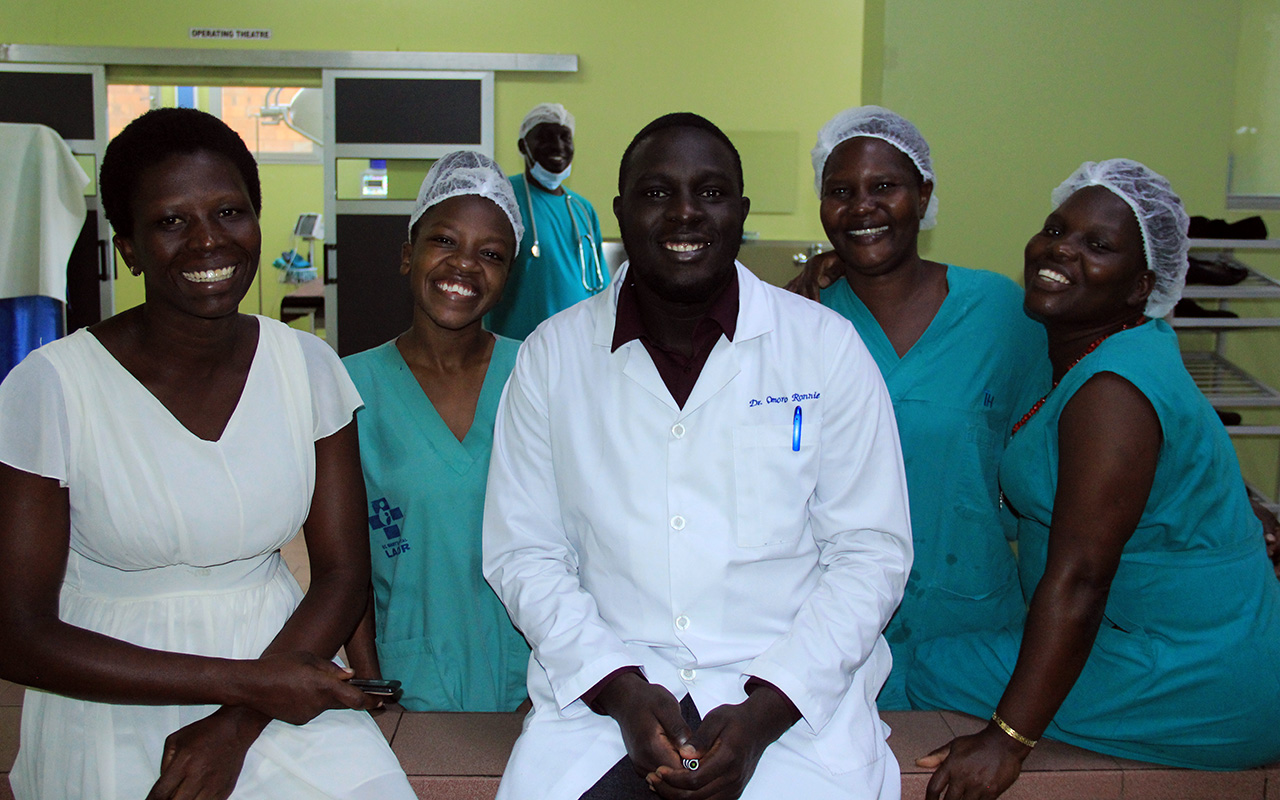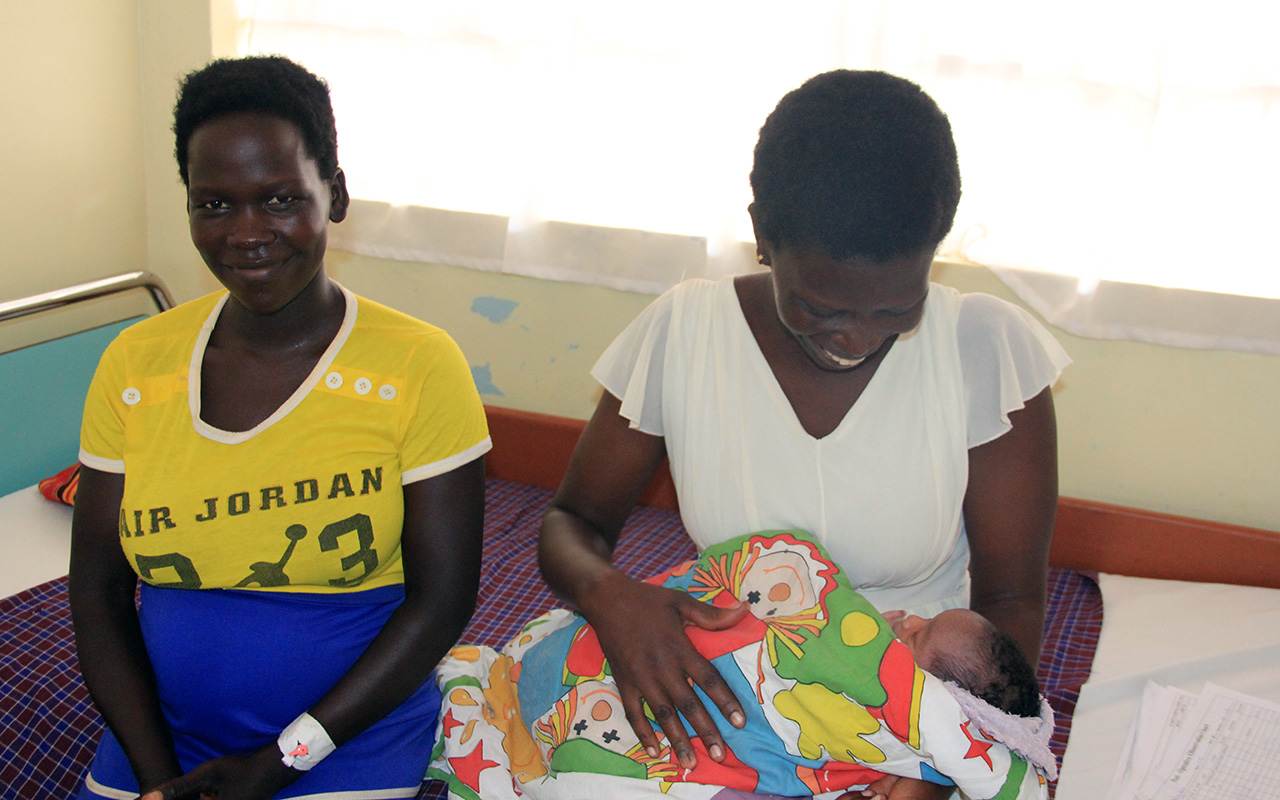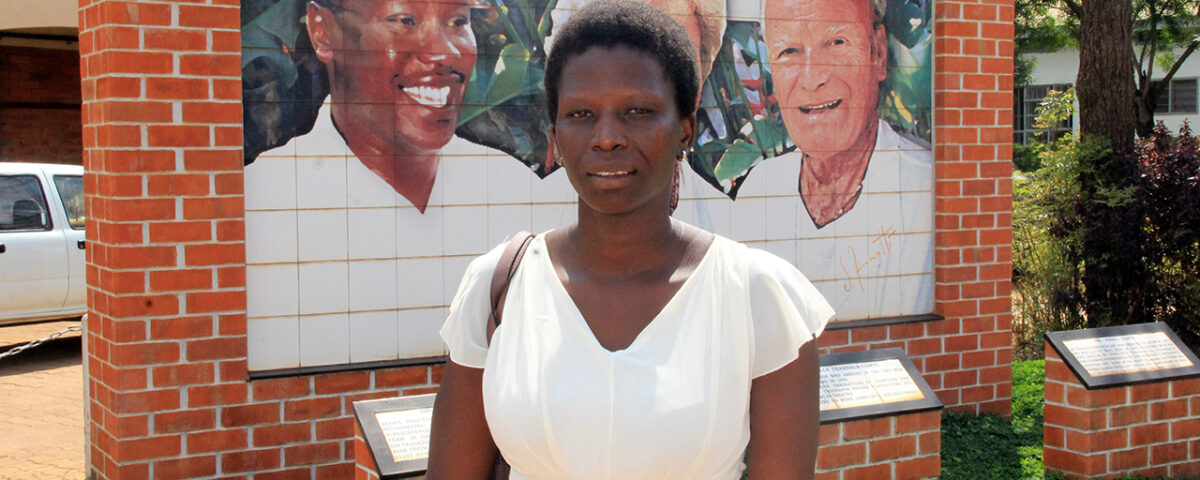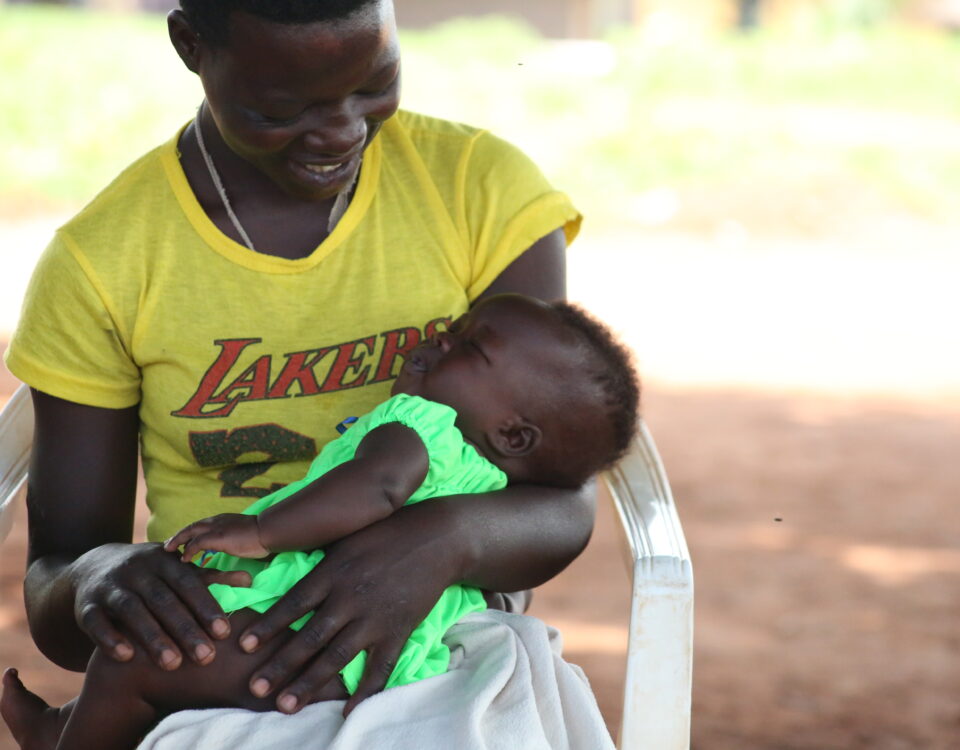For the largest part of her life, Ketty had neither screened her blood nor has there been a situation requiring her to either donate or receive blood from someone. She lived a humble life, being raised by a single mother after her father abandoned them – never to be seen again.
Determined to secure the future of her children, the mother of 5 girls and one boy toiled and moiled all her life. When Ketty sat her Uganda Advanced Certificate of Education, there was no money to send her to the university. It was then that her mother encouraged her to join Lacor Health Training Institute and pursue a certificate in nursing.
At Lacor, Ketty wasted no time in lamenting over her predicament. All her focus was on excelling in class and making her mama proud. But one day, as it is always the case at the hospital, students were called to be screened to know their blood type. The student community has been the backbone of blood supply to the hospital, coming to the rescue in times of scarcity and saving hundreds of lives. Ketty was among those students called.
And for the first time, she was told that her blood type is rhesus O negative. This is a rare but very important blood type. O negative is the most common blood type used for transfusions when the blood type is unknown. It is often used in cases of trauma, emergency, surgery and any situation where the blood type is unknown.
“When they said I am O negative I still didn’t believe also, but when I was contacted for a case of a patient that needed surgery I said; ‘Okay. If these people think I am really negative, let me go and donate.’ So I donated. That was the first time,” said Ketty.
For Ketty, this marked the beginning of her life as a precious blood donor. Because of the scarcity of her blood type, the lab technicians saved her contact and shared it also with the regional blood bank. Calls started coming in during odd hours of the night, mostly in emergencies.
“There’s a time I got a call from Lamwo [about 130km from Gulu]. They had a very young child with very low Hb. There was no blood completely, so they called me. It was already late in the night but since they offered to send their ambulance to pick me, I had to go,” she said.
Since 2013 when she was still a student up until now, Lacor Hospital and other facilities have called on Ketty so many times. At one point a family offered to put her on special diet, having saved their relative and she was still a student. They felt they had drained her too much, but Ketty respectfully declined.

Ketty pose for a photo with the maternity team
Despite the inconvenience of waking up at night and her own life’s struggles of raising her daughter by herself, and being jobless, Ketty has never turned down a request to donate blood nor has she asked for any form of compensation from those she saves. All she needs is transport and she’ll be where you want her to be.
One Saturday night on the 5th of August 2023, Ketty received a call from Jonathan, a Lab Technician at Lacor Hospital. He’s the one who screened her the very first time. He sounded desperate and rightfully so. A 20-year-old woman was lying on the operating table with a ruptured uterus. She urgently needed blood but being O negative, neither the hospital nor the regional blood bank could source for her type as soon as possible.
Jonathan’s only hope after reaching out to all the facilities that could possibly help, would be Ketty, his long-time last resort. Without hesitation, Ketty agrees to come. The supervising staff on duty was Sister Flona Ayot. She quickly got into an ambulance and brought Ketty in.
We asked Ketty why she keeps sacrificing for people she knows nothing about and she said; “I just want to help, especially for this blood group that is very rare. If I refuse to give blood, I’ll feel guilty. If something happens to a patient, I’ll think am the reason.”
Ketty is a devout Anglican Christian whose fear for God drives her to always help. “Maybe there’s a reason am given this blood,” she said. “I think if I didn’t have that knowledge that God maybe put this blood group in me for a purpose, I would not donate like that freely.”
Perhaps it is this fear of God that drove her to risk her life when called upon to save a one-year-old from South Sudan who was anemic. Despite being two months pregnant, Ketty decided to hide this fact from the laboratory people so she could donate. She knew no one would allow her to donate if it was discovered she’s pregnant. Fortunately, nothing bad happened to her and her unborn child.
In most of the instances that Ketty donated, she never stayed long enough to find out the outcome. So, we took her to the maternity ward to meet the 20-year-old woman she saved. Her name is Adong Concy, a mother of three. She’s doing well and her newborn that caused the rapturing of the uterus is also breastfeeding well.

Ketty holds the newborn as Concy looks on to the camera
Being a health worker, Ketty asked Concy to go slow on childbearing given her tender age. Concy started giving birth as a teenager when she was about 17. It is not uncommon for young girls in this part of the world to get pregnant. It is something that the government is still struggling with.
Seeing Concy alive and in good spirits warmed the heart of Ketty. “It makes me feel good, especially if I give and that person picks up very well. I feel happy,” she said. Holding Concy’s little boy, Ketty had an expression of joy and fulfilment written all over her face.
For now, she goes back to her little girl a satisfied heroine, knowing that Concy will live. What is unknown to her is whether she’ll find work again to continue to fend for her daughter. Like her mother, she must find a way. The small garden she rented has been able to provide food but she’ll need more than that to carry on.


